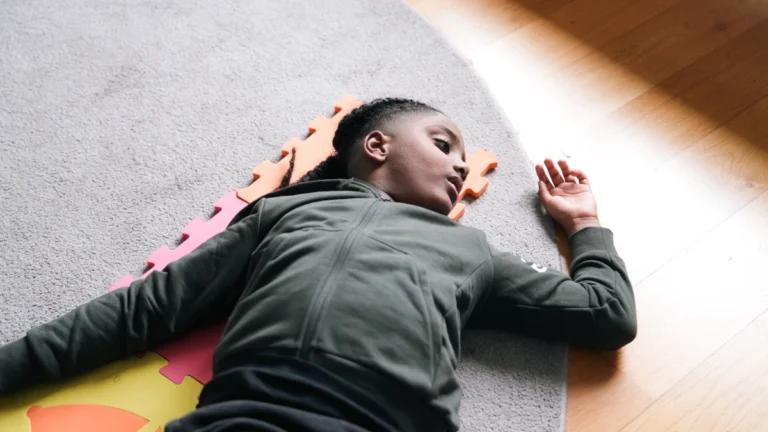The Best Fluffy Pancakes recipe you will fall in love with. Full of tips and tricks to help you make the best pancakes.
The Search for Hope in Progressive Neurological Diseases
Amyotrophic Lateral Sclerosis (ALS) and Multiple Sclerosis (MS) are two of the most devastating neurological conditions, affecting the brain, spinal cord, and overall motor function. Traditional treatments often focus on symptom management, but stem cell therapy has emerged as a cutting-edge option offering regenerative potential.
Originally gaining traction in areas like stem cell therapy for autism, this approach is now being explored for its ability to repair damaged nerve tissues and modulate the immune system, providing hope for patients with ALS and MS.
Table of Contents
Understanding ALS and MS: What Sets Them Apart?
Before diving into therapy options, let’s clarify the difference:
- ALS (also known as Lou Gehrig’s disease): A neurodegenerative condition that leads to motor neuron death, causing progressive muscle weakness and paralysis.
- MS: An autoimmune disease where the immune system attacks the myelin sheath of nerve cells, leading to disruptions in communication between the brain and body.
Both conditions involve neuroinflammation, cell damage, and a breakdown in central nervous system function—making them key targets for regenerative treatments like stem cells.
How Stem Cell Therapy Works in ALS and MS
Stem cell therapy focuses on restoring lost or damaged functions by:
- 🧠 Replacing damaged neurons or supporting existing ones
- 🔄 Modulating the immune system, especially in autoimmune conditions like MS
- 💉 Delivering trophic factors (growth-supporting proteins) to help tissue repair
- 🔬 Reducing inflammation, which is a key driver in both ALS and MS
Several Stem Cell Therapy Autism Clinical Trials have demonstrated the effectiveness of these mechanisms—many of which apply similarly to MS and ALS pathology.
Clinical Trials and Research: Where Are We Now?
Clinical studies show that mesenchymal stem cells (MSCs), often used in autism therapy, may slow progression in ALS and MS. Highlights include:
- A phase II ALS trial published in Neurology showed intrathecal MSC injections reduced disease progression in select patients.
- In MS, stem cells are being used for immune system “reset” following high-dose chemotherapy—a process known as autologous hematopoietic stem cell transplantation (AHSCT).
- A study from Italy found improved mobility and quality of life scores in MS patients after stem cell therapy.
These results align with many Stem Cell Therapy Success Stories Autism, in which neuroregulation and improved communication were reported.

Stem Cell Therapy for Autism vs. ALS/MS: Similarities and Differences
| Aspect | Autism | ALS/MS |
| Target Cells | Neural pathways, immune cells | Motor neurons, myelin, immune |
| Stem Cell Type | MSCs, umbilical cord, bone marrow | MSCs, AHSCT, NSCs (neural stem cells) |
| Focus | Behavior, sensory integration | Motor function, immune modulation |
| Common Keywords | Stem Cell Therapy for Autism Reviews, Success Rate | Clinical Trials, Immune Reset, Neurological Recovery |
Safety, Cost, and Accessibility
- ✅ Safety: Studies show that MSC therapy is generally well-tolerated. Common Stem Cell Therapy Autism Side Effects like low-grade fever or temporary discomfort also apply to ALS/MS cases.
- 💸 Cost of Stem Cell Therapy for Autism and ALS/MS treatments ranges significantly. Depending on the clinic and location, prices vary from $5,000 to $30,000 or more.
- 🌍 Stem Cell Therapy Autism Near Me? Many clinics that treat autism also accept ALS and MS patients, especially in countries with more flexible regulatory frameworks.
Tip: When researching options, prioritize Best Stem Cell Clinics for Autism and neurological diseases with proven track records, ethical practices, and medical oversight.
Conclusion: Is Stem Cell Therapy Worth Considering for ALS/MS?
While not a cure, stem cell therapy has opened new doors for ALS and MS patients seeking quality-of-life improvements and slowed disease progression. Ongoing Stem Cell Therapy Autism Research is helping refine methods, and similar models are being applied to adult neurodegenerative conditions.
If you’re exploring options, speak to specialized clinics, ask for outcome data, and consider whether stem cell therapy aligns with your goals and expectations.
❓ Frequently Asked Questions (FAQ)
Is stem cell therapy FDA-approved for ALS or MS?
Stem cell therapy is still considered experimental in the U.S. for ALS/MS. However, the FDA has approved some trials and offers “expanded access” in certain cases.
What kind of stem cells are used for ALS or MS?
Primarily mesenchymal stem cells (MSCs) and hematopoietic stem cells (HSCs). Neural stem cells (NSCs) are also under investigation.
Can a clinic treating autism also treat ALS/MS?
Yes. Many clinics offering stem cell therapy for autism also treat other neurological conditions like ALS and MS.
What’s the outlook for patients undergoing stem cell therapy?
Outcomes vary. Some patients report slowed disease progression, pain relief, and improved function. Results depend on disease stage, treatment protocol, and cell type used.








